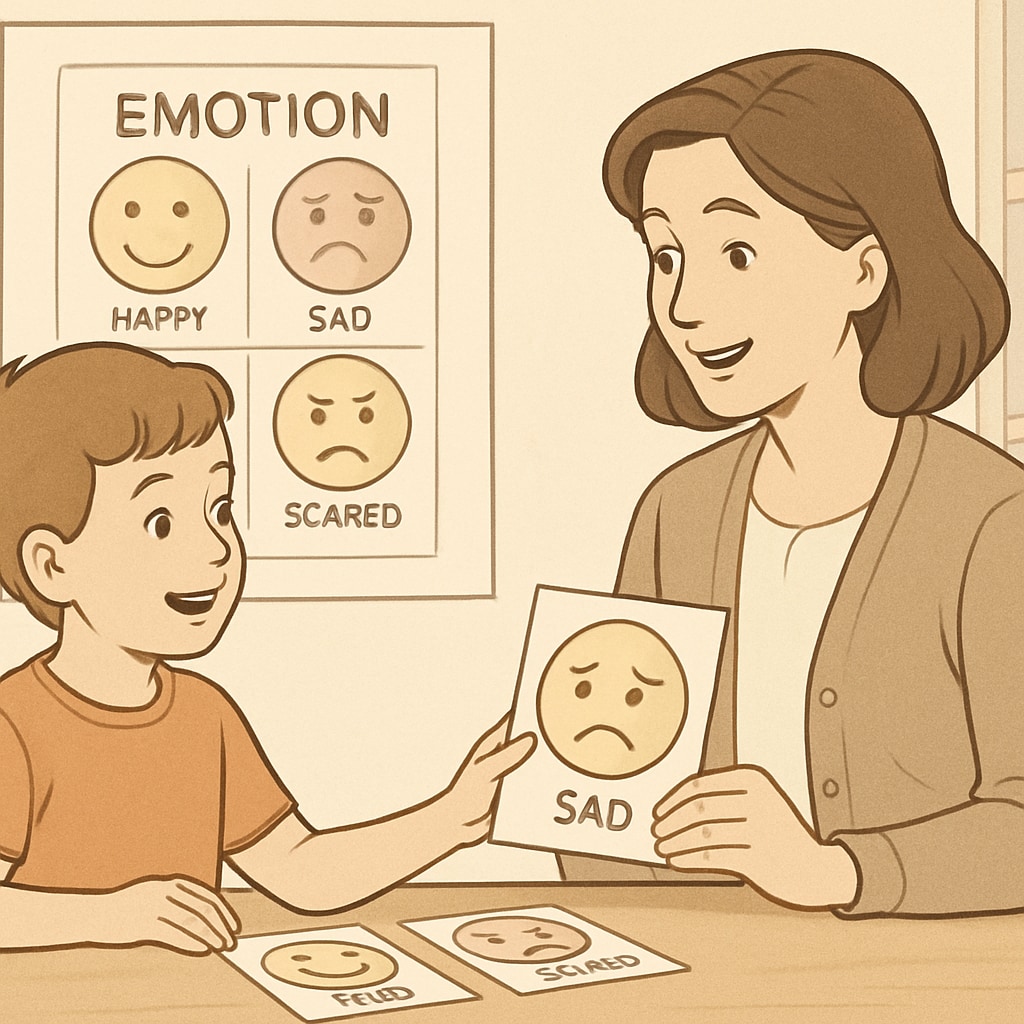Emotional education is an indispensable part of children’s development and emotional management. It equips young minds with the tools to understand, express, and regulate their feelings, fostering healthy emotional responses that are crucial for lifelong success. While traditional education often emphasizes intellectual and physical growth, emotional education plays an equally important role in shaping a child’s overall well-being.

Why Emotional Education Matters
Emotions are at the core of human interactions, influencing how we connect with others, make decisions, and handle challenges. For children, learning to recognize and manage their emotions at an early age can lead to healthier relationships, stronger self-esteem, and improved academic performance. For example, a child who understands how to calm themselves during stressful situations is more likely to overcome obstacles effectively.
Research has shown that children with strong emotional skills are better equipped to navigate life’s complexities. Emotional education not only teaches children how to identify their feelings but also encourages empathy, resilience, and effective communication. These skills are foundational for personal and professional success in adulthood.
- Improves self-regulation and impulse control
- Encourages empathy and social connections
- Boosts academic focus and achievement
How Emotional Education Supports Healthy Emotional Reactions
Healthy emotional reactions are the ability to respond to situations in a way that aligns with one’s values and goals. Emotional education helps children build this capability by teaching them techniques such as mindfulness, problem-solving, and active listening. In addition, it fosters a safe environment where they can express their feelings without judgment.
Parents, educators, and caregivers play a significant role in this process. By modeling positive emotional behaviors and providing constructive feedback, adults can guide children toward better emotional management. For instance, a teacher who validates a student’s frustration while offering strategies to resolve it can help the child develop a balanced emotional approach.

Practical Strategies for Emotional Education
Incorporating emotional education into daily routines doesn’t have to be complex. Here are some practical strategies to promote emotional growth in children:
- Emotion Identification Games: Use fun activities to teach children how to name and categorize their feelings.
- Storytelling: Share stories or books that explore emotional themes to spark conversations about feelings.
- Role-Playing Scenarios: Practice real-life situations where children can learn to respond to emotions positively.
- Mindfulness Activities: Introduce breathing exercises or meditation to help children manage stress and increase self-awareness.
These strategies can be adapted at home, in classrooms, or during extracurricular activities, making emotional education accessible to every child.
Conclusion: Building Lifelong Resilience
Emotional education offers children the opportunity to develop resilience, empathy, and self-control—qualities that are invaluable throughout their lives. By prioritizing emotional learning alongside academic and physical growth, we can ensure children are equipped to face life’s challenges confidently and compassionately.
As a result, emotional education becomes not just a supplementary aspect of learning but the cornerstone of nurturing balanced, healthy individuals. It’s time to recognize its importance and integrate it into every child’s upbringing.
For further insights into emotional development, visit Emotional Intelligence on Wikipedia or explore resources on Emotion on Britannica.


